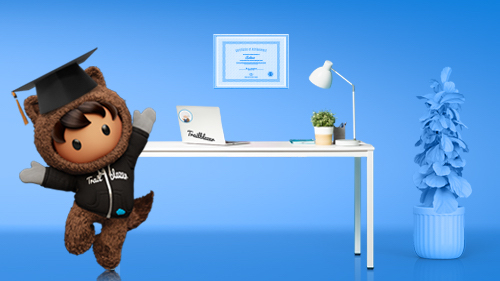
Get your FREE 30-day trial.
Please complete all fields.
I am a millennial. I was on the receiving end of a participation trophy, or two. Miraculously, I don’t live with my parents. I help my coworkers understand what “on fleek” is and why they definitely should stop saying it. Also, I love a good meme.
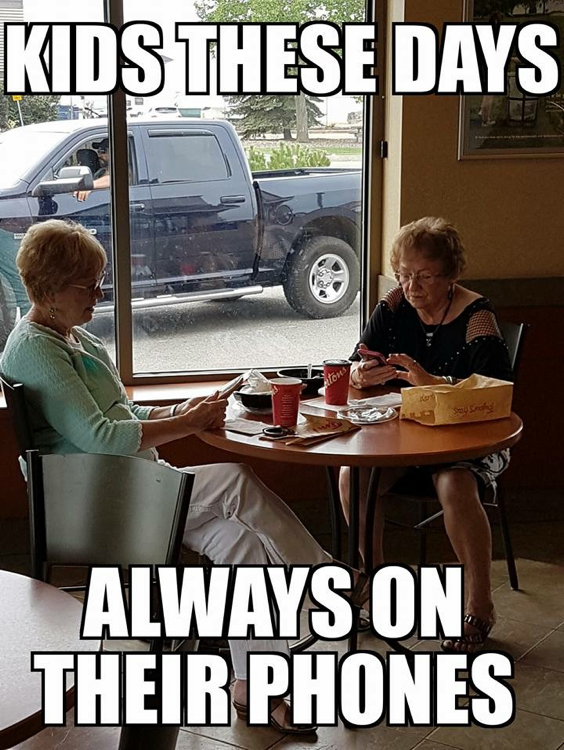
We’ve all got a lot of opinions about millennials. Mostly, the overwhelming sentiment seems to be that they are The Worst, and that the workplace would be better off without them. Articles such as these seem to be written almost daily:

But how much of those opinions are based in, I don’t know...actual facts?
Not much, it turns out! So let’s separate facts from fiction, with data!
Myth 1: Your millennial employee has one foot out the door
Millennials are believed to be needy narcissists who are looking to job-hop to the next thing ASAP. It’s true that many millennial employees are looking to jump ship – what’s false, however, is that this makes them any different from other generations.
According to a Deloitte survey, two out of every three millennials hopes to move on from their current employer by 2020. That puts them at exactly the same place that American’s in their 20’s were at in 1988.
Fact: Most young people have had one foot out the door, regardless of the generation.
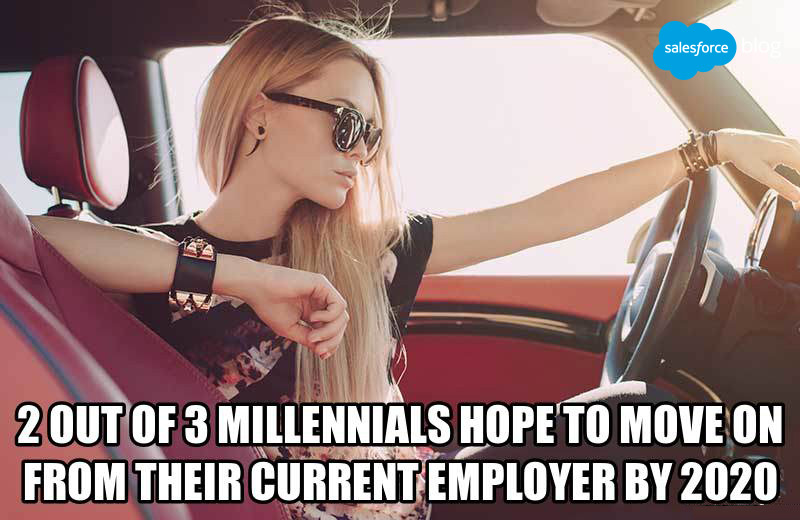
Myth 2: Millennials are narcissists
Maybe it’s because all of those thinkpieces telling us that we’re narcissists, but millennials actually have a lower opinion of themselves than other generations, not higher.
In a Pew Research Center poll, 59% of 18- to 34-year-olds described their generation as self-absorbed, 49% said they were wasteful, and 43% described their generation as greedy. On top of this, only 36% of millennials see themselves as hardworking and 24% see themselves as responsible.
That’s what millennials think of each other. In reality, almost 70% of millennials say that giving back and being civically engaged are among their highest priorities. They also put their money where their mouth is — millennial investors are 2x more likely than other generations to invest in companies with a stated social or environmental impact and 84 of employed millennials donated to charity in 2014, according to the Millennial Impact Report. Not quite as self-absorbed and greedy as you might think!
Fact: Millennials don’t think they’re the greatest, they think their generation is wasteful, greedy, and irresponsible. And that’s not even true!
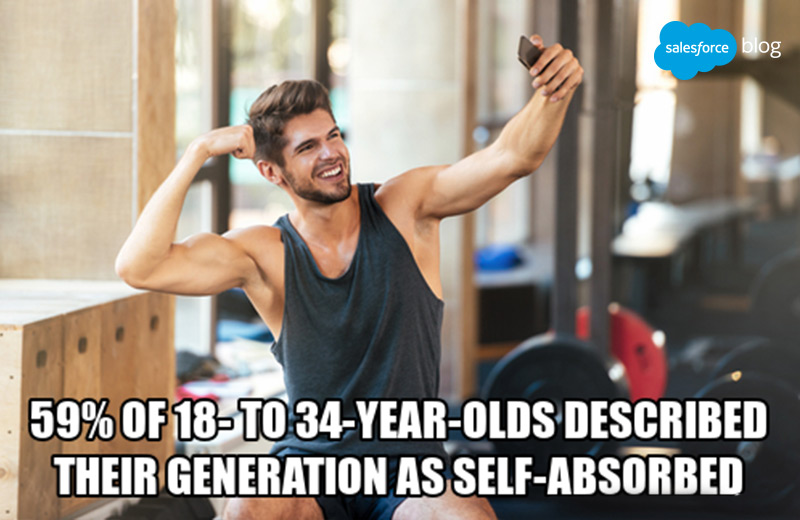
Myth 3: Millennials are lazy
Perhaps the most enduring millennial myth of all, does this one really need that much explanation, or can I just get to the facts?
A World Economic Forum study investigated American attitudes towards taking time off work. The study identified those who take limited vacation for various reasons, including guilt, pride, or fear of being replaced as “work martyrs.” The study found that 43 percent of work martyrs are millennials. When you look at how much vacation millennials are taking, 24% of millennials forfeited vacation in 2015, meaning they didn’t use all days they were entitled to, compared to 19% of generation X and 17% of baby boomers.
A big reason millennials aren’t taking vacation because they are competitive and looking to advance in their career. Hardly the slacker generation they are made to seem, 69% of millennials see themselves in managerial roles in 10 years, according to Forbes.
In summation — millennials aren’t all that different from the generations before. The true differentiation, in fact, is between younger versus older people.
Fact: Millennials take less vacation than their older peers and are striving to reach goals of becoming managers.
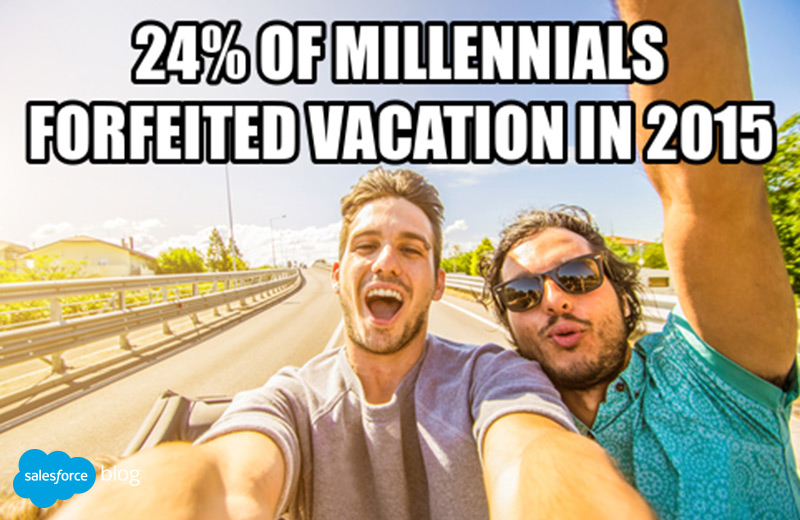
Myth 4: Millennials aren’t willing to work 9-5
Also described as: millennials are entitled; millennials think the are special unicorns.
Millennials have a reputation for having little patience for a desk job. They want to work for themselves, pitching their ideas in front of Mark Cuban on Shark Tank or crowdfunding their latest businesses on sites like GoFundMe. Of all the myths on this list, this is the one that I found myself more inclined to believe.
It’s true — a larger chunk of millennials list “Start my own business” as one of their long-term career goals compared to Gen X and Baby Boomers. But it’s not as dramatic as one might think: 17% of millennials, compared to 12% of Gen X and 15% of Baby Boomers, according to the IBM Institute for Business Value.
Fact: The vast majority of millennials don’t think they’re the next Zuckerberg.

Myth 5: Millennials aren’t satisfied at work without catered meals, ping pong tables, bean bag chairs, frequent promotions, ample training opportunities, and much, much more…
In Silicon Valley, where free food, dog-friendly offices, and unlimited vacation seems almost par-for-the-course, companies are getting more creative with the workplace perks. Office spaces like Google and Zappos pioneered the office setting packed with beanbag chairs, nap pods, and pool tables, as part of an intense focus on company culture.
The idea goes, if millennials see their friends posting their work perks on Instagram and Snapchatting their promotion announcement, how could they possibly be satisfied?
Countering the hard-to-please stereotype, millennials reported being more satisfied than the rest of the population with the training and skills development they receive at their jobs. Additionally, 76% of millennials were satisfied with their opportunities for promotion, a full 10 percentage points higher than other generations. When you measure a number of work-life dimensions, millennial responses are equal to or more favorable in the following areas: overall engagement, such as pride in the organization, optimism about the company’s future, trust in leadership, and willingness to recommend their workplace to a friend.
Fact: Millennials are actually pretty satisfied at work.
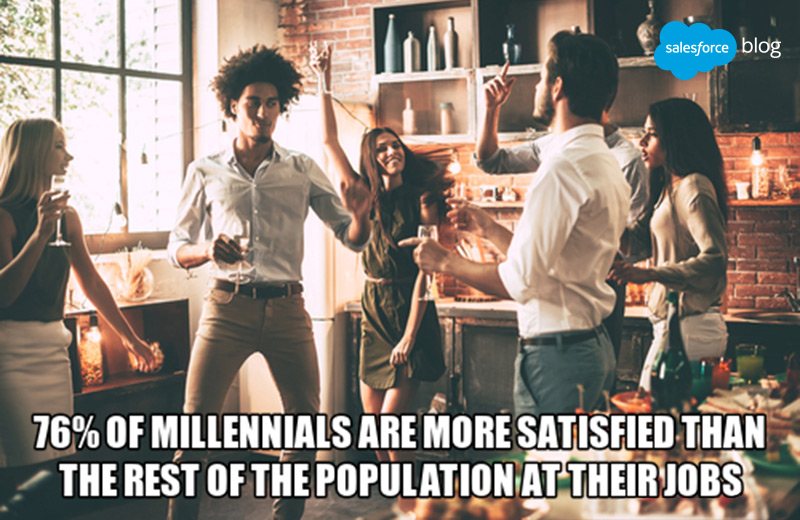
Millennials make up one-third of the American workforce — the largest generation at work. It’s time to stop giving them a bad rap as lazy, entitled, high maintenance children and acknowledge that they are the tech-savvy future (and even current!) leaders of tomorrow.